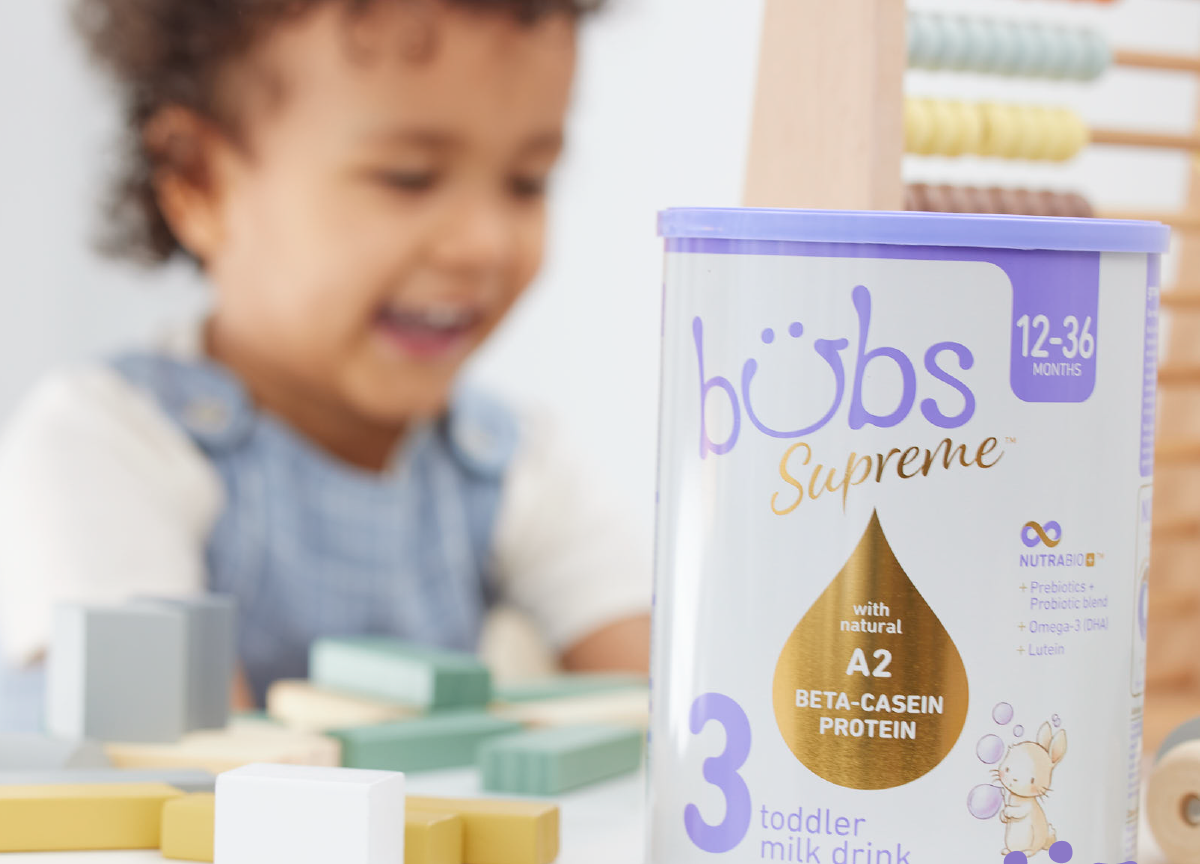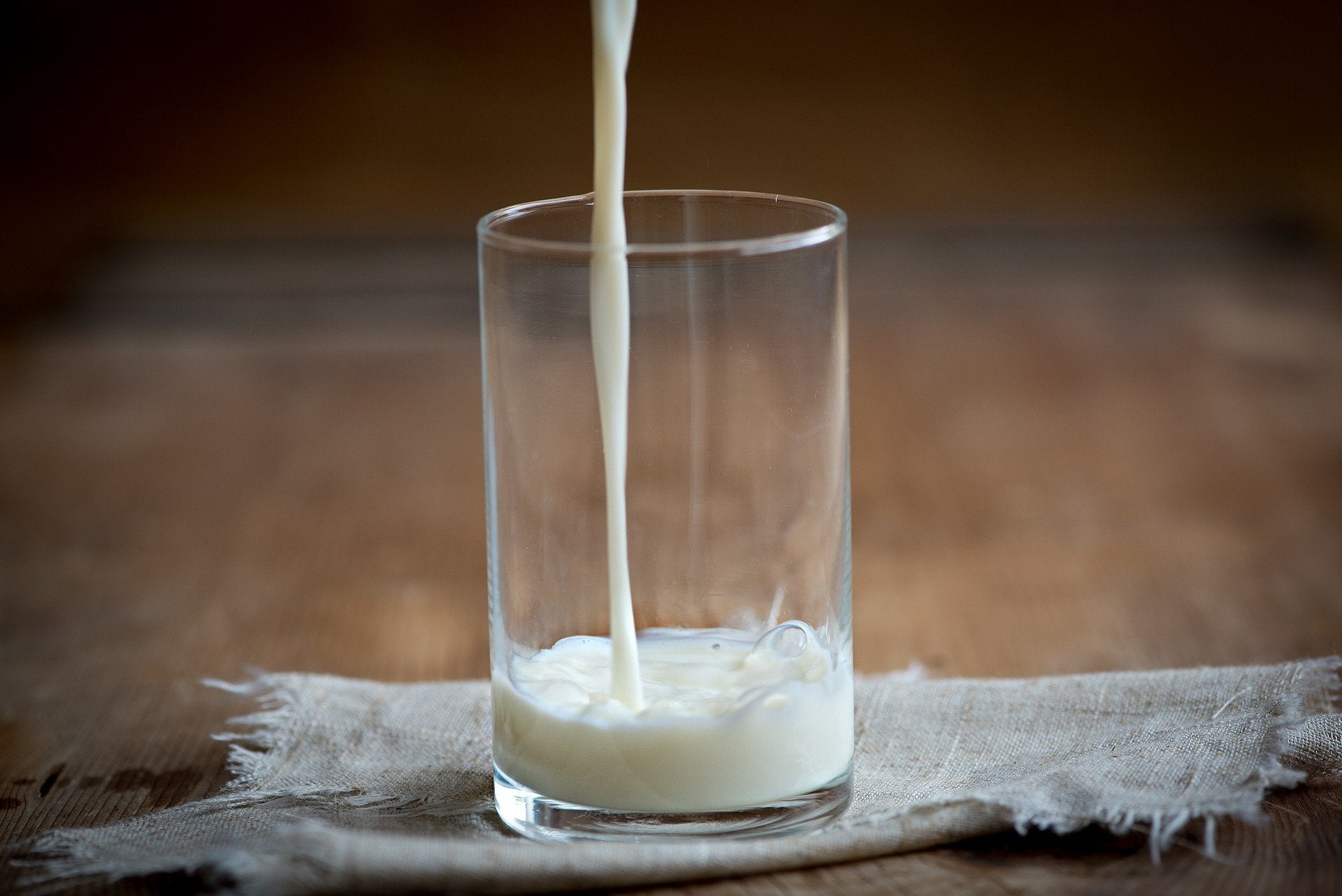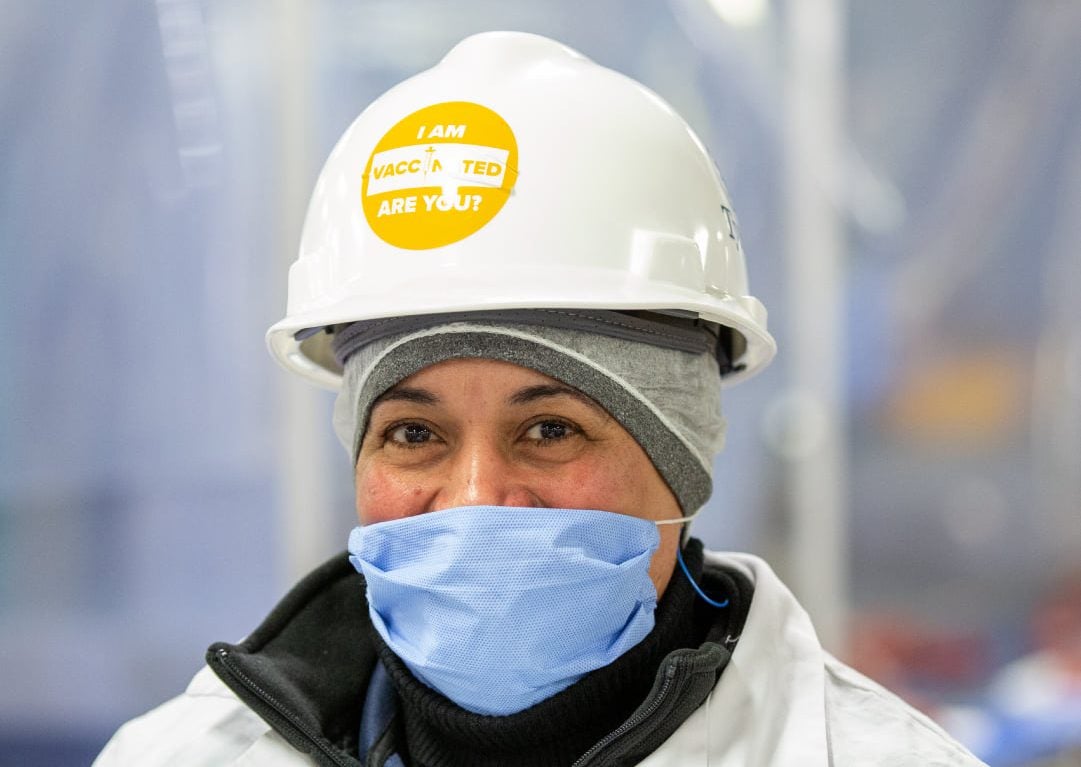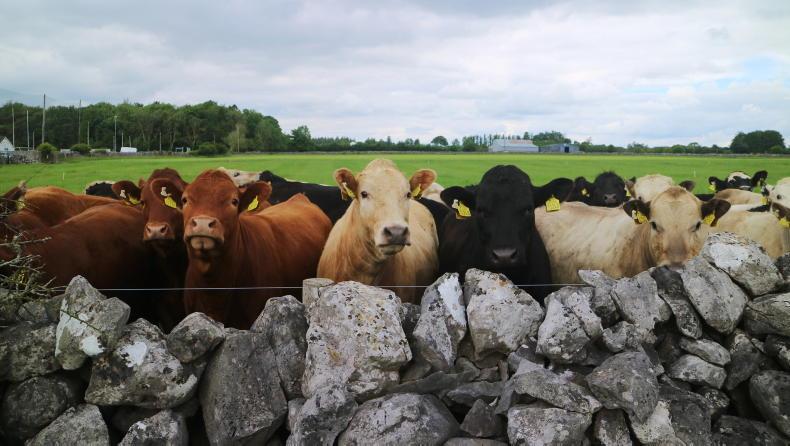Bubs Australia starts strategic review
In the wake of changes to Bubs’ board of directors, the Australia-based group is evaluating its operations.

Bubs Australia, the infant-formula and baby-food maker, has started a strategic review two weeks after announcing a new chair.
The publicly-listed business said it expects to complete the assessment by the end of June.
Bubs Australia revealed the review alongside a sales update for the third quarter of its financial year, a period in which gross revenue fell 10%.
Gross revenue from China fell by 56%. Bubs Australia pointed to “significant amounts of finished goods inventory held in trade”.
China accounts for a fifth of Bubs Australia’s gross revenue. The company has seconded Jackie Lin, an executive at private-equity firm and investor C2 Capital, to manage its business in China and review its options in the country.
Rathie, who was a non-executive director at Bubs Australia, was appointed chair on 6 April.
She replaced Dennis Lin, who had been in the role since August 2017.
In February, Bubs reported a statutory EBITDA loss of A$42m (US$27.7m) for the six months to 31 December, compared to a A$1.2m profit a year earlier. The underlying EBITDA loss was A$22m versus A$1.2m.
Group revenue was down 6% at A$31.5m. Infant-formula revenue, which Bubs Australia describes as the “most profitable portfolio segment”, rose 44% to A$27.9m.
In the third quarter to the end of March this year, group gross revenue was $15.8m, down 10%. Bubs Australia said branded gross revenue increased 26% to $15.1m.
“The period saw continued growth in the USA, with gross revenue up 116% on Q2 and further good progress against securing a permanent regulatory pathway,” Rathie said in a stock-exchange filing today (28 April).
“Expenditure management is an immediate focus of the board, and a strategic review of the global business has commenced.”
In its statement, Bubs Australia said “the short-term outlook for sales to China in Q4 remains subdued” but added: “It is pleasing that the Chinese economy is now fully open for business again. The company will comment further on future prospects once its strategic review is complete.”
Danone invests in Israel cell-based dairy and infant-milk producer Wilk
Danone said Wilk aligns with its goal of “creating a healthy and sustainable future”.

Danone Manifesto Ventures, the venture-capital arm of Danone, has invested in cell-based dairy and infant-formula manufacturer Wilk Technologies.
Israel-based Wilk, which launched in 2020, produces cultured human breast milk and animal milk.
The publicly-listed Tel Aviv company has a number of patent applications, and one approved patent, on laboratory production processes that replicate the milk-producing cells of humans and other mammals.
Danone said Wilk aligned well with its goal to partner with mission-driven food and beverage companies that are “creating a healthy and sustainable future”.
Approached by Just Food, Danone would not disclose the sum invested or the size of the stake it will own in Wilk.
“As the global leader in our categories, we are always exploring new and emerging science-led technologies. Wilk’s expertise is relevant to our dairy, plant-based and specialised nutrition offerings and while it is early days, we believe their work in this area can contribute to our research, innovation and product development,” a spokesperson for Danone said in a statement.
Steakholder Foods also purchased $450,000 worth of shares in Wilk giving it a 2.5% stake. “Steakholder Foods aims to identify synergies with Wilk, including various types of strategic cooperation with the company surrounding Steakholder Foods’ proprietary biology and printing technologies,” the company said.
Nasdaq-listed Steakholder Foods changed its name last year from MeaTech 3D. The business produces ‘real’ meat from animal cells using 3D printing technology.
The investment comes after the Italian government last week approved a bill banning the use of cell-based food and animal feed. It said it had taken the measure to protect the country’s food traditions.
The plan still needs to be ratified by the country’s parliament. The move means companies in Italy would not be allowed to produce food or feed “from cell cultures or tissues derived from vertebrate animals”. Breaching the rules could result in fines of up to €60,000 ($65,022).
Elsewhere in Europe, a Danish health and sustainability foundation has also announced support for a research project to reduce the cost of producing cell-based food.
Kemin Food Technologies – Asia Launches VALTEQ™ Line of Quality Improvers for Instant Noodles
|
SINGAPORE (March 14, 2023) – Kemin Industries, a global ingredient manufacturer that strives to sustainably transform the quality of life every day for 80 percent of the world with its products and services, has developed VALTEQ™, a unique line of quality improvers for instant noodle manufacturers. The liquid product line uses emulsifier solutions to increase consumers’ overall instant noodle eating experience by addressing some of the everyday challenges facing manufacturers.
“The VALTEQ portfolio helps food manufacturers increase production efficiency, contribute to quantity output optimization, reduce unnecessary waste and maximize profits,” said Michelle Lim, President, Kemin Food Technologies – Asia. “The product line brings two new-to-the-industry iterations—VALTEQ T and VALTEQ AO—which can be applied directly to noodle cakes. VALTEQ AS also offers alternative application for instant noodles, which can be sprayed or dipped in the solution.” The instant noodles sector was significantly impacted by COVID-19, which led to higher-than-anticipated demand across all regions compared to pre-pandemic levels. The global market is projected to grow from USD$54.60 billion in 2022 to USD$81.84 billion in 2029.1 “Instant noodles are one of the most internationally recognized food products consumed across both developing and developed countries,” said Joanne Tan, Associate Marketing Director, Kemin Food Technologies – Asia. “Market reports show that convenience, taste, nutrition and affordability all contribute to instant noodles’ increasing popularity among consumers. The VALTEQ suite of products answers all these demands, making it the ideal solution for instant noodle manufacturers.” Kemin Food Technologies – Asia will host a technical seminar and several application workshops to launch VALTEQ at the Food Ingredients China tradeshow in Shanghai on March 15 – 17. Click here to learn more about Kemin Food Technologies – Asia’s newest innovation to improve the quality of instant noodles.
|
|
|
|
About Kemin Industries Kemin Industries (www.kemin.com) is a global ingredient manufacturer that strives to sustainably transform the quality of life every day for 80 percent of the world with its products and services. The company supplies over 500 specialty ingredients for human and animal health and nutrition, pet food, aquaculture, nutraceutical, food technologies, crop technologies, textile, biofuel and animal vaccine industries. For over half a century, Kemin has been dedicated to using applied science to address industry challenges and offer product solutions to customers in more than 120 countries. Kemin provides ingredients to feed a growing population with its commitment to the quality, safety and efficacy of food, feed and health-related products. Established in 1961, Kemin is a privately held, family-owned-and-operated company with more than 3,000 global employees and operations in 90 countries, including manufacturing facilities in Belgium, Brazil, China, Egypt, India, Italy, San Marino, Singapore, South Africa and the United States. |
Tyson Foods jobs to go at US poultry plants under 2021 automation programme
The affected sites in Virginia and Arkansas employ 692 and 969 workers, respectively.

Tyson Foods could shed more than 1,600 jobs as the US meat major plans to shut two poultry facilities.
Scheduled for 12 May, the closures affect the company’s Glen Allen plant in Henrico County, Virginia, and the Van Buren site in the county of the same name in Arkansas. The factories employ 692 and 969 workers, respectively.
“To strengthen our chicken business, we are focused on operational excellence and optimising our network to reach full capacity in every Tyson Foods facility. With that said, the current scale and inability to economically improve operations has led to the difficult decision to close the facilities,” the Springdale, Arkansas-headquartered business said in a statement.
In both cases, Tyson Foods said it planned to “shift demand” to other facilities and will work with employees “to help ensure they have the option to apply for open positions and relocation assistance where applicable” to alternative plants.
Separately, Tyson Foods announced plans in October to close three other plants – two in Chicago and one in Dakota Dunes, South Dakota, employing around 1,000 people. An offer was made to those workers to shift to Springdale, Arkansas. However, a report emerged in December that a majority of staff at those locations were unwilling to move to other facilities.
A spokesperson for publicly-listed Tyson Foods confirmed to Just Food today (14 March) the company will have 44 other poultry plants in the US once the Glen Allen and Van Buren sites close, with another set to come on stream later this year in Danville, Virginia.
Tyson Foods had flagged back in 2021 it planned to eliminate jobs across its network. In December of that year, the business revealed it would invest US$1.3bn in automation over a three-year period through its 2024 financial year and take measures to upskill the workforce. At the time, it said the labour requirement would be reduced by 3,150 over the course of the programme.
For the fiscal 2023 first quarter to 31 December, Tyson Foods posted sales of $13.2bn, up 2.5% year on year. Chicken volumes grew 2.5% to about $4.2bn while beef volumes rose 2.9% to around $4.7bn. Pork was down 7.4% at $1.5bn.
In the numbers announced in February, group operating income plunged to $467m from $1.5bn, and adjusted EPS slid to 85 cents from $2.87.
For the 2022 financial year to 1 October, Tyson Foods’ sales amounted to $53.2bn, up 13%.
Ireland’s Dawn Meats set to acquire local peer Kildare Chilling
The deal will further consolidate Ireland’s meatpacking industry.

Dawn Meats, the Ireland-based meat processor, has entered into an agreement to acquire local peer Kildare Chilling Company.
The deal, which will further consolidate Ireland’s meatpacking industry, was confirmed in a brief statement from Co. Waterford-based Dawn Meats. It is subject to approval from the country’s Competition and Consumer Protection Commission (CCPC).
Family-owned Kildare Chilling Company is a beef and lamb processor which markets its products under the Kildara and Heritage Town brands. It operates a meat processing plant in Kildare town in the county of the same name.
The deal, first revealed in the Irish Times newspaper last month but unconfirmed until now, will see Dawn Meats taking over a business employing roughly 350 people and with a turnover in 2021 of EUR140m (US$150.4m).
Dawn Meats, the largest Irish beef processor in volume terms, supplies supermarkets, the foodservice channel and manufacturers and exports to more than 50 countries. It has ten Irish facilities and 12 in the UK.
It took full control of a three-year old joint venture it had with Northern Ireland-based Dunbia in July 2020, taking over Dunbia’s two plants in the Republic and combining Dunbia and Dawn’s UK businesses.


 eatmaker@list.ru
eatmaker@list.ru